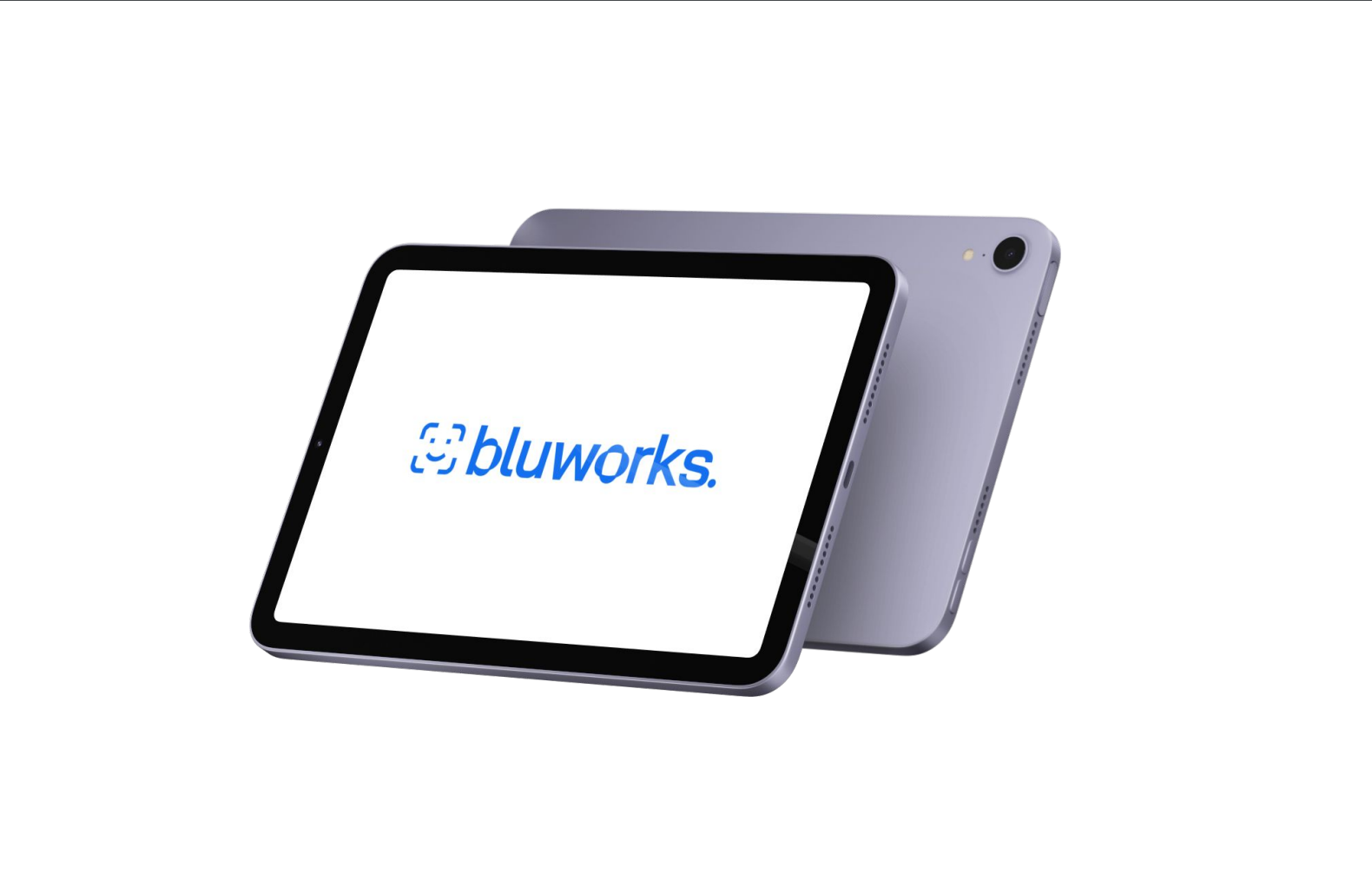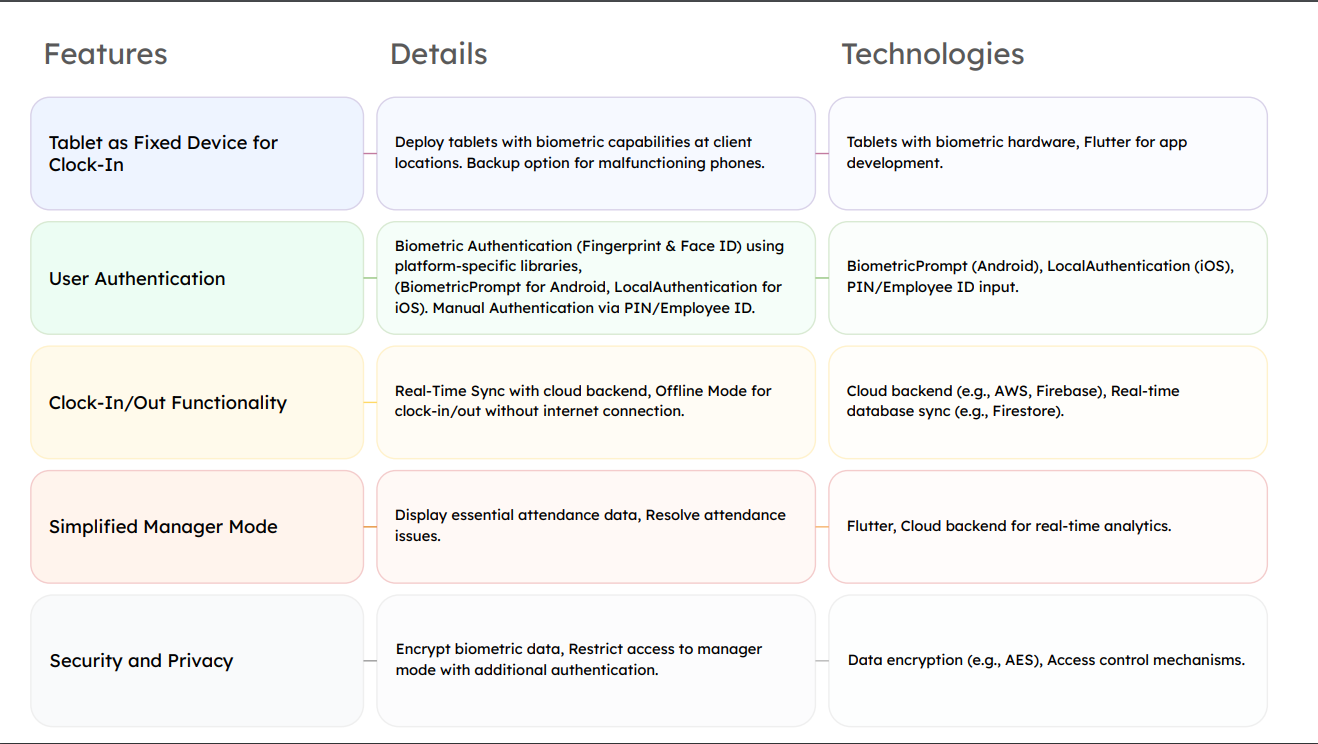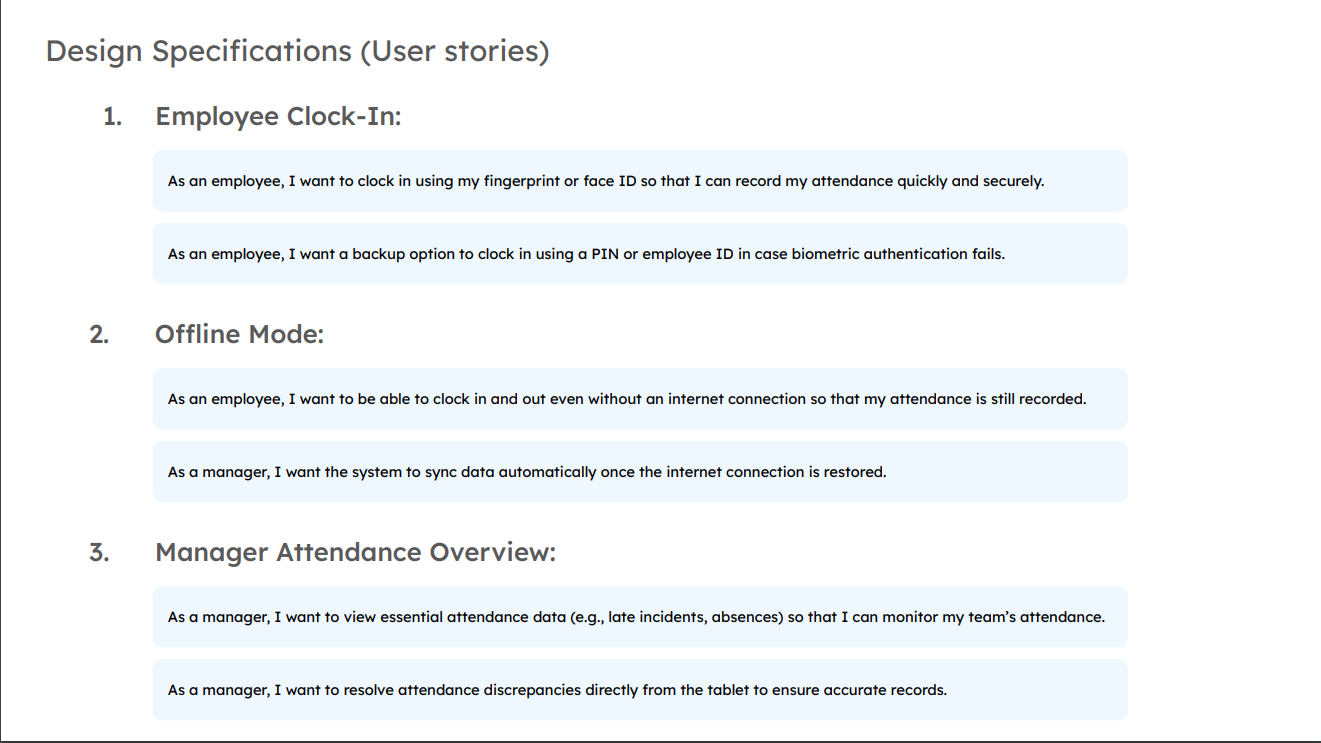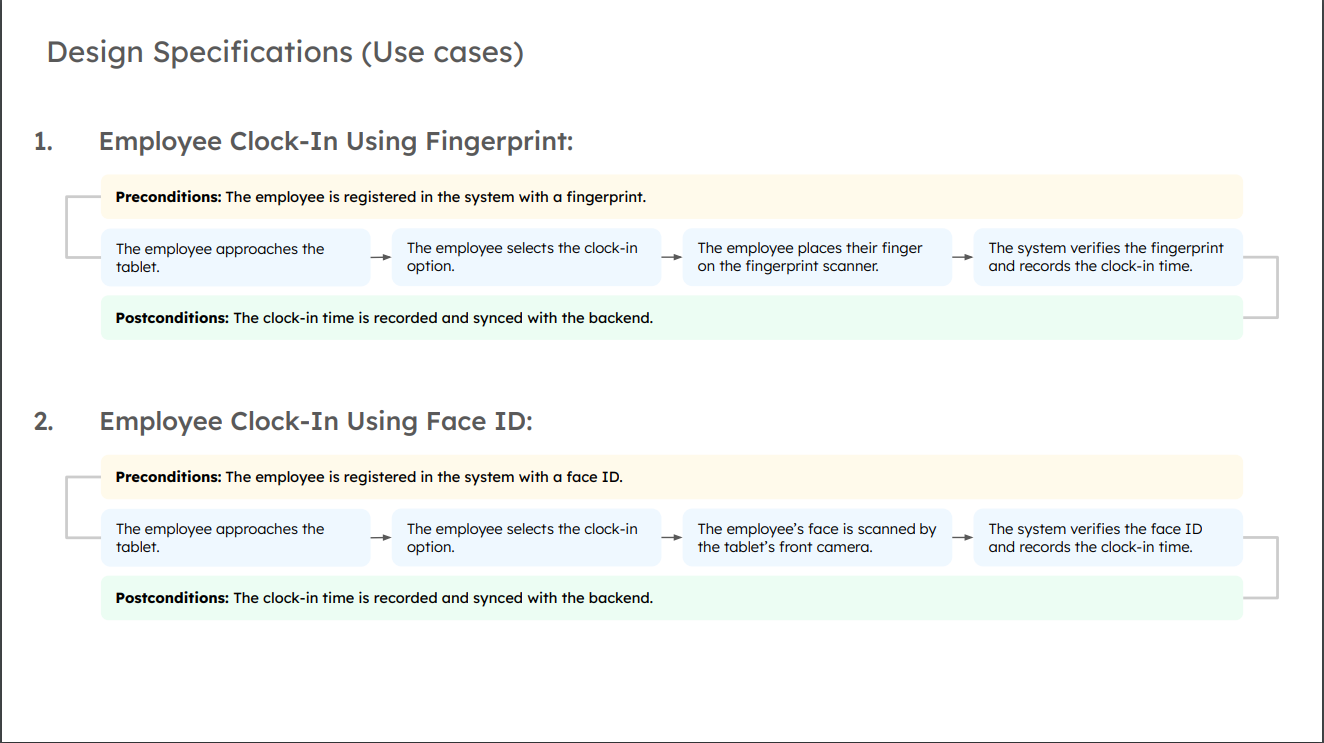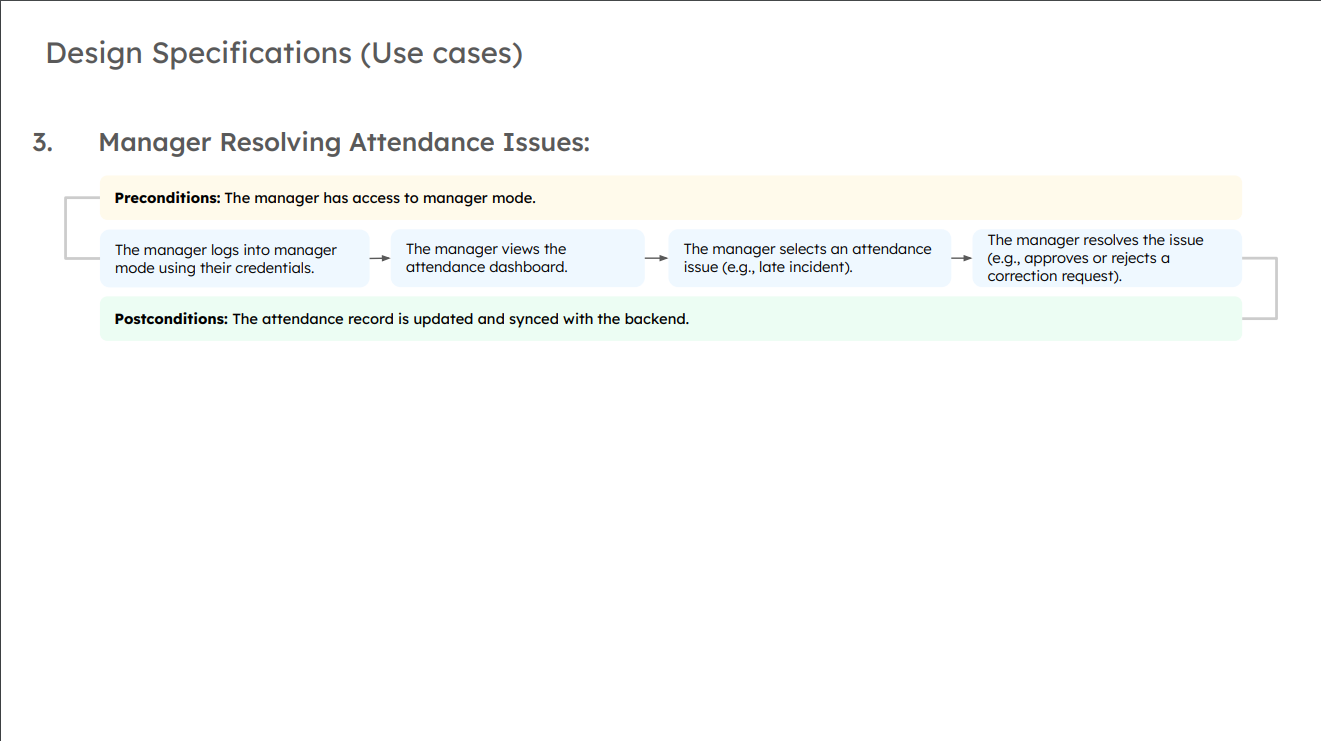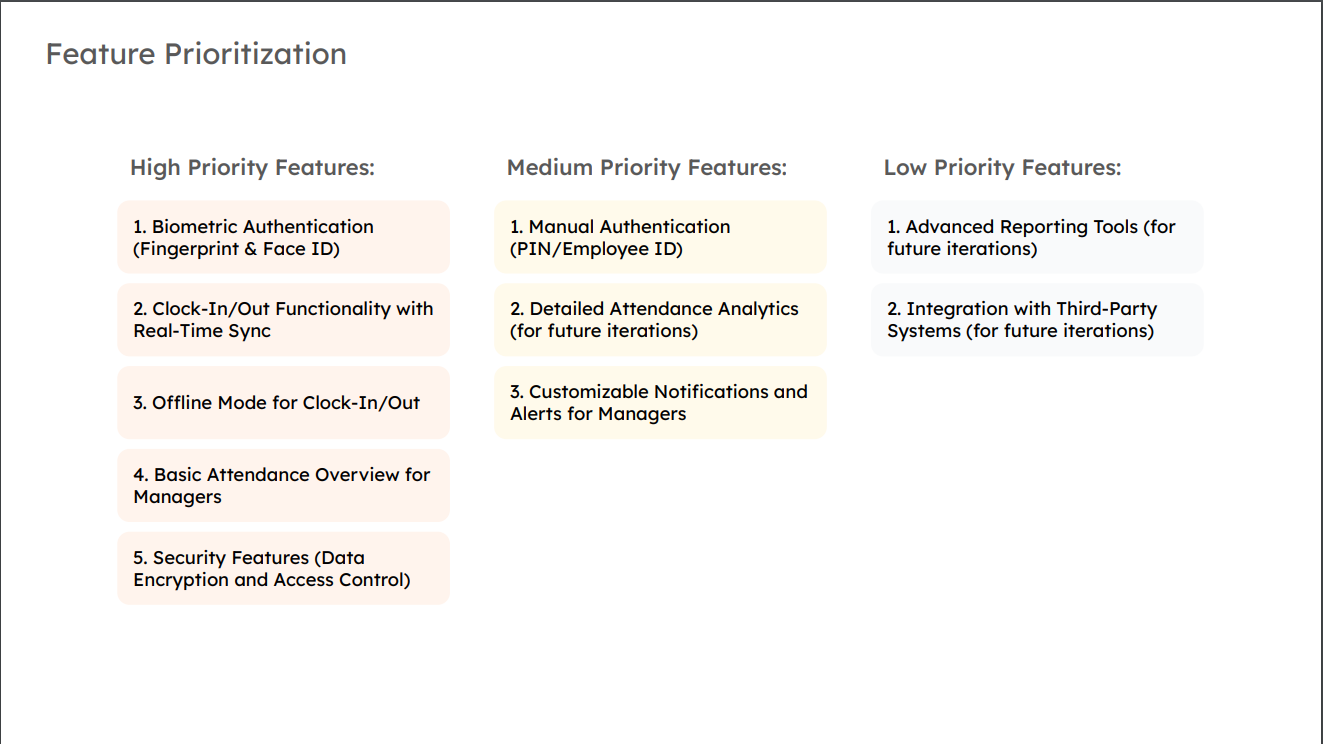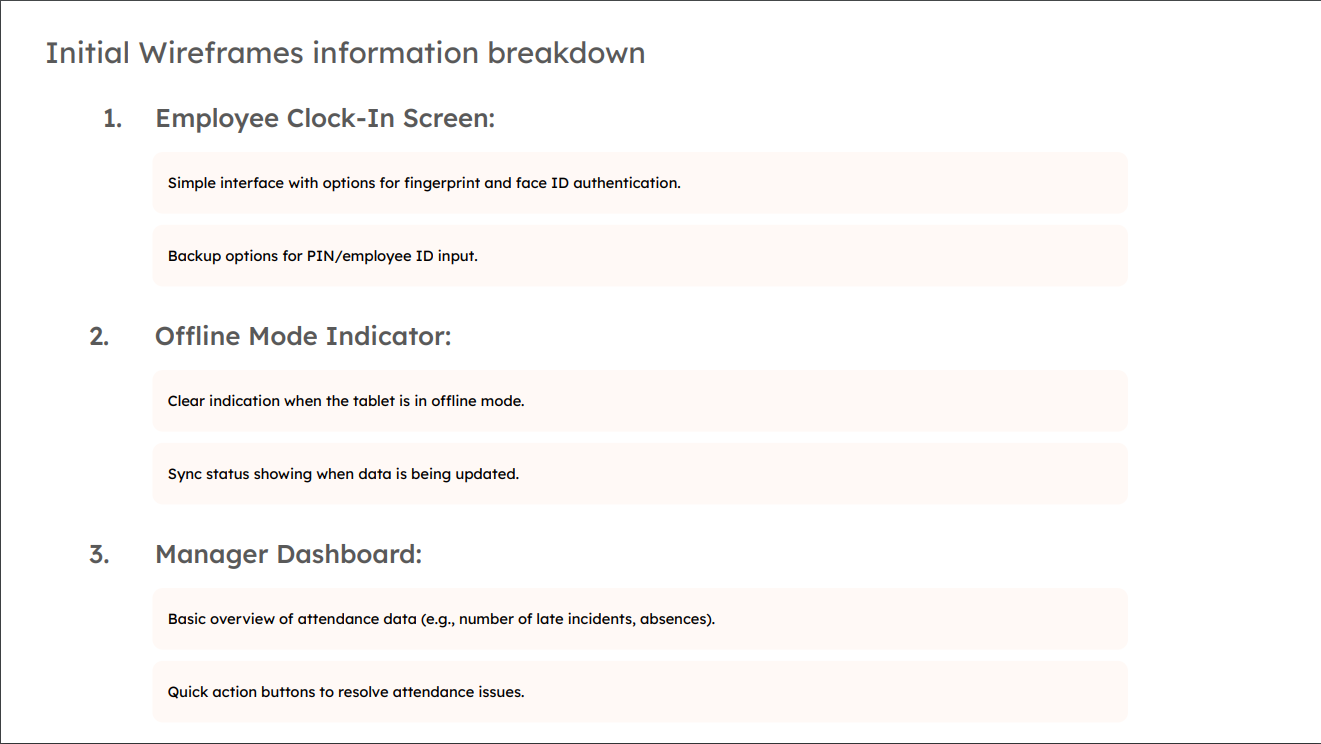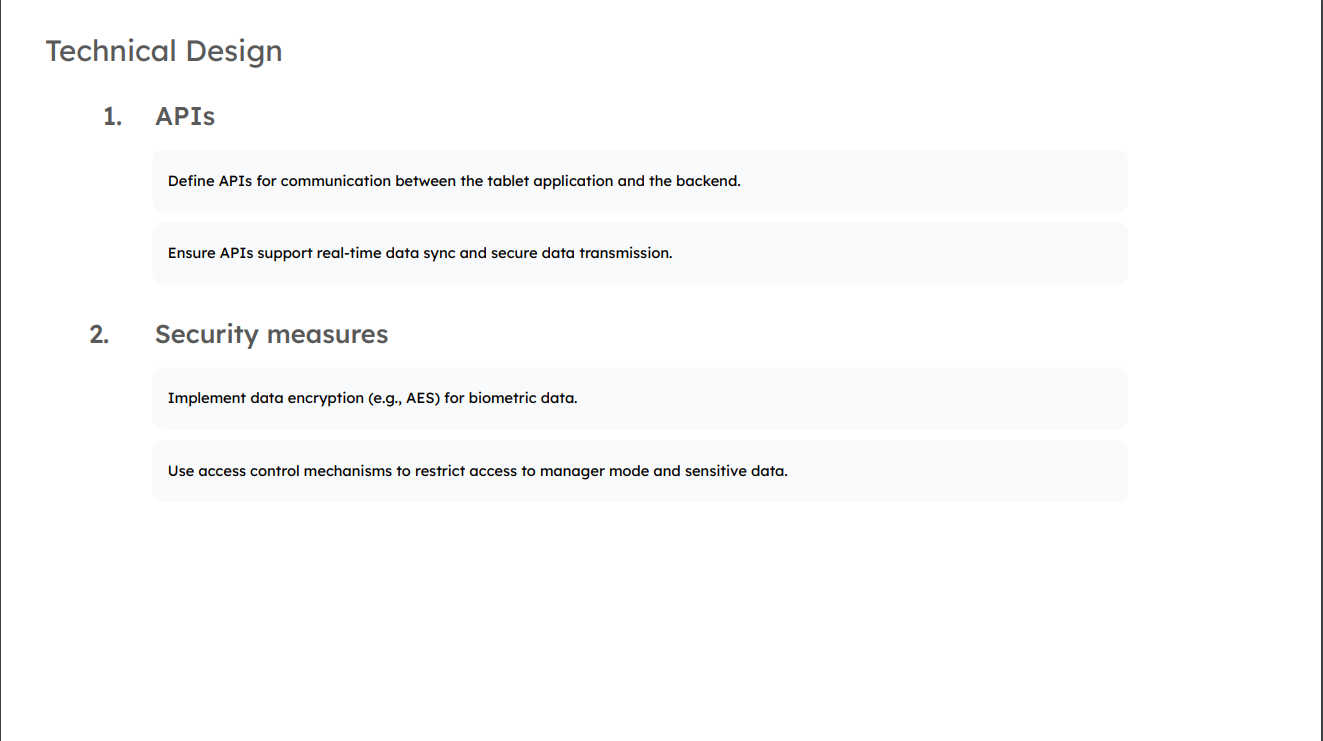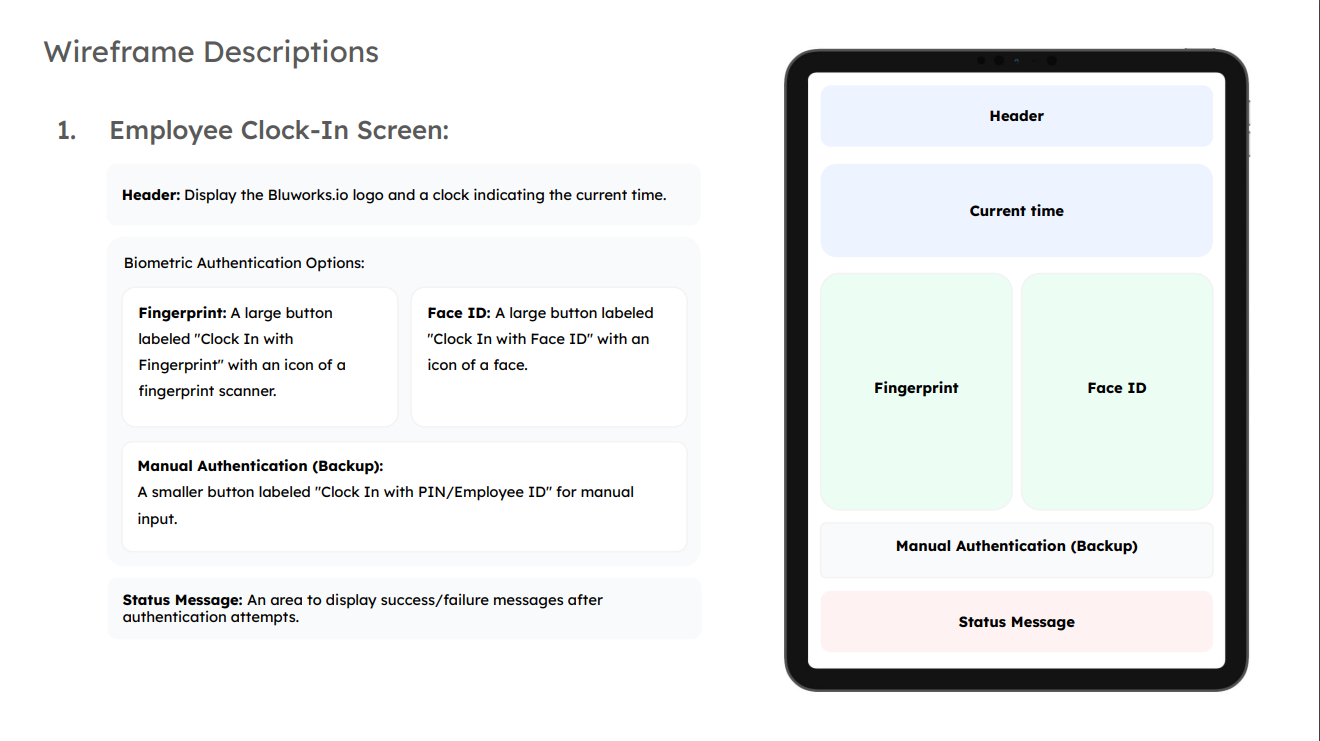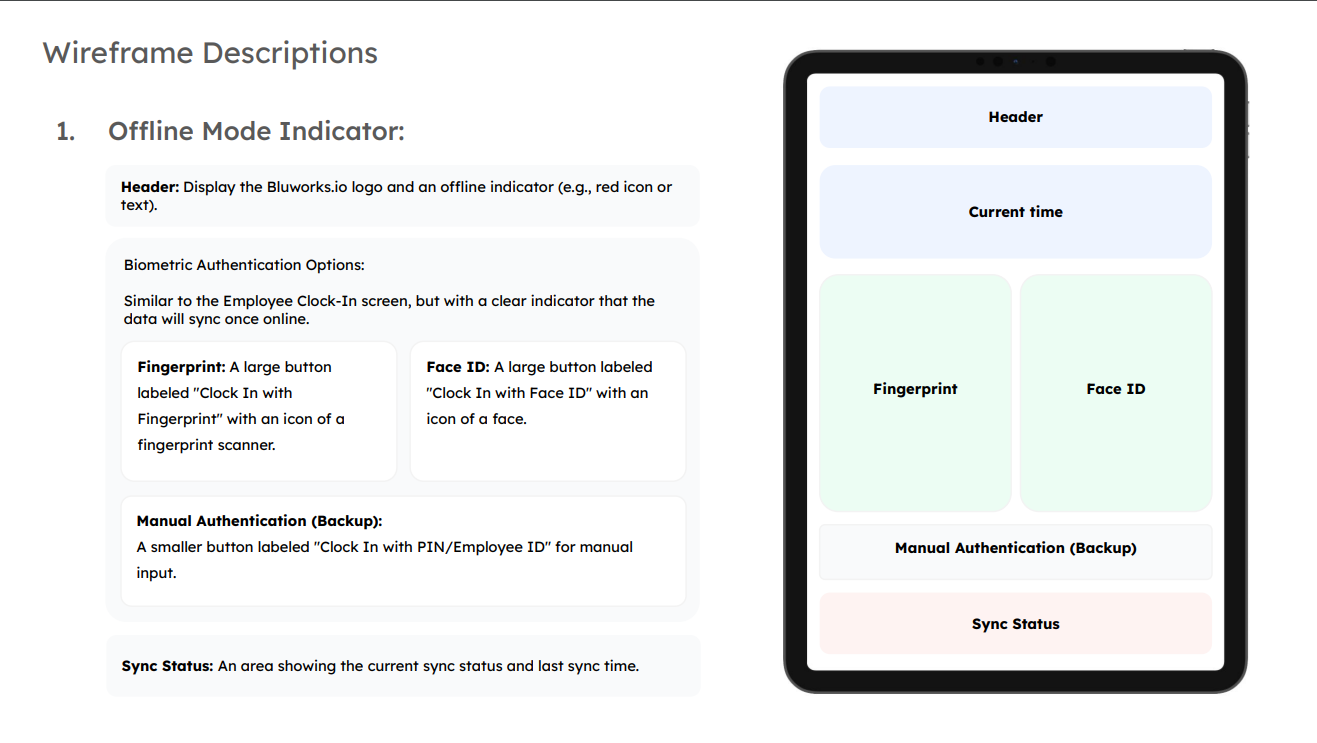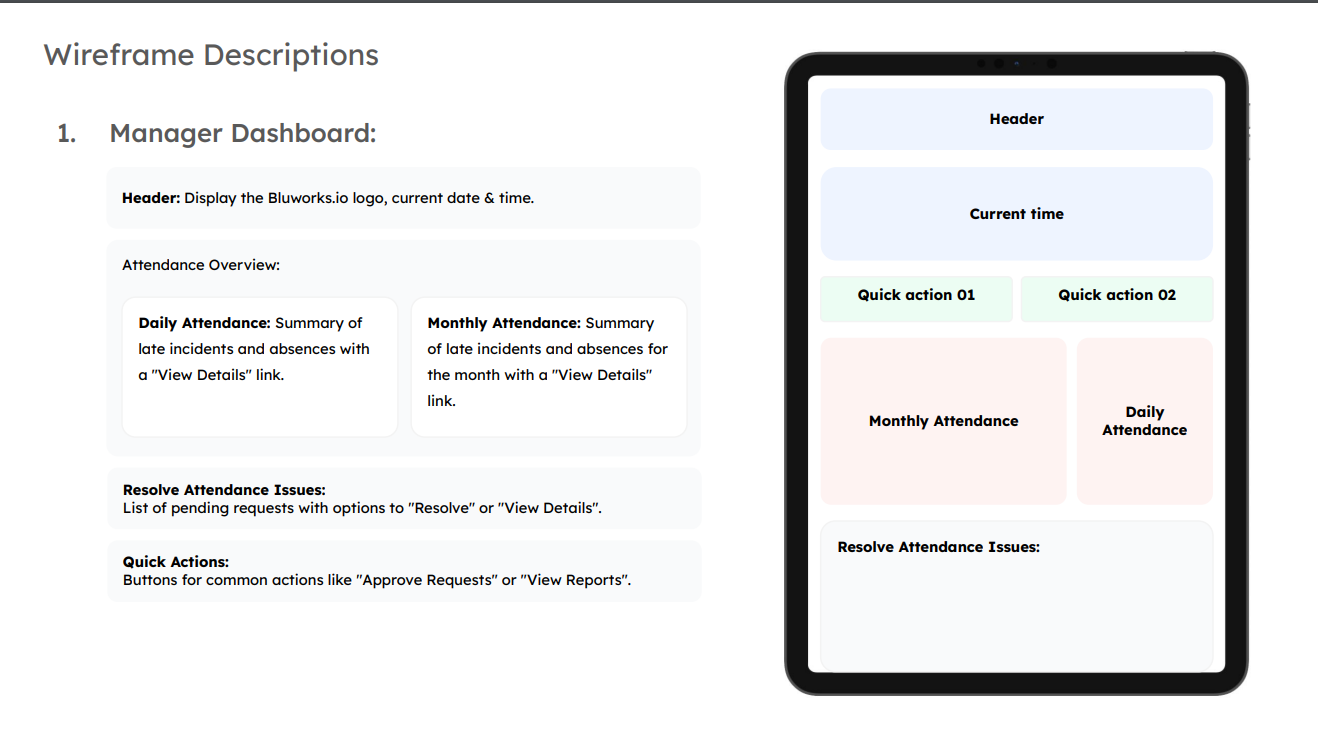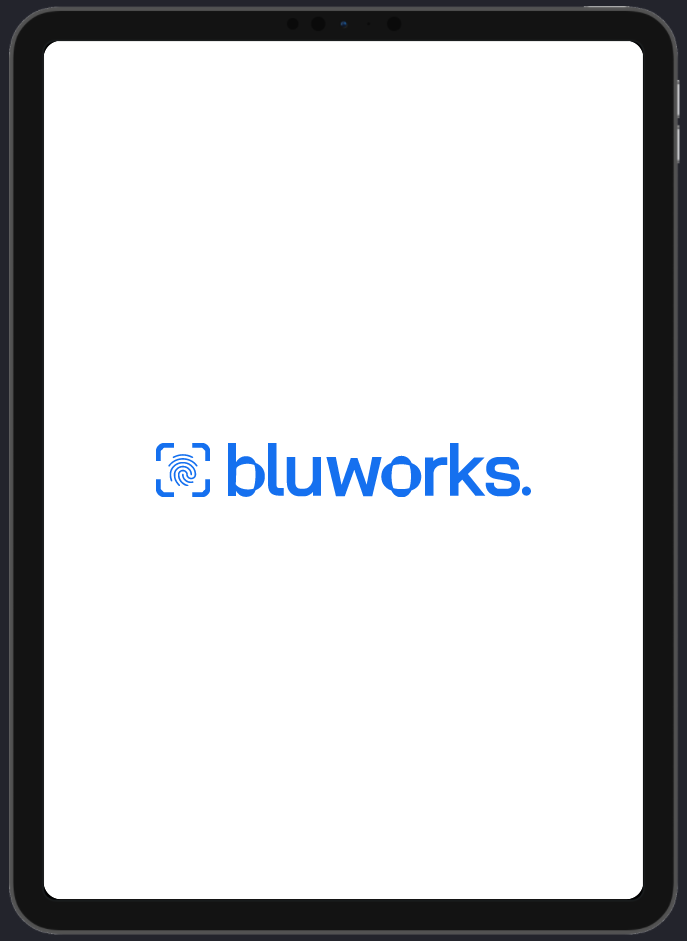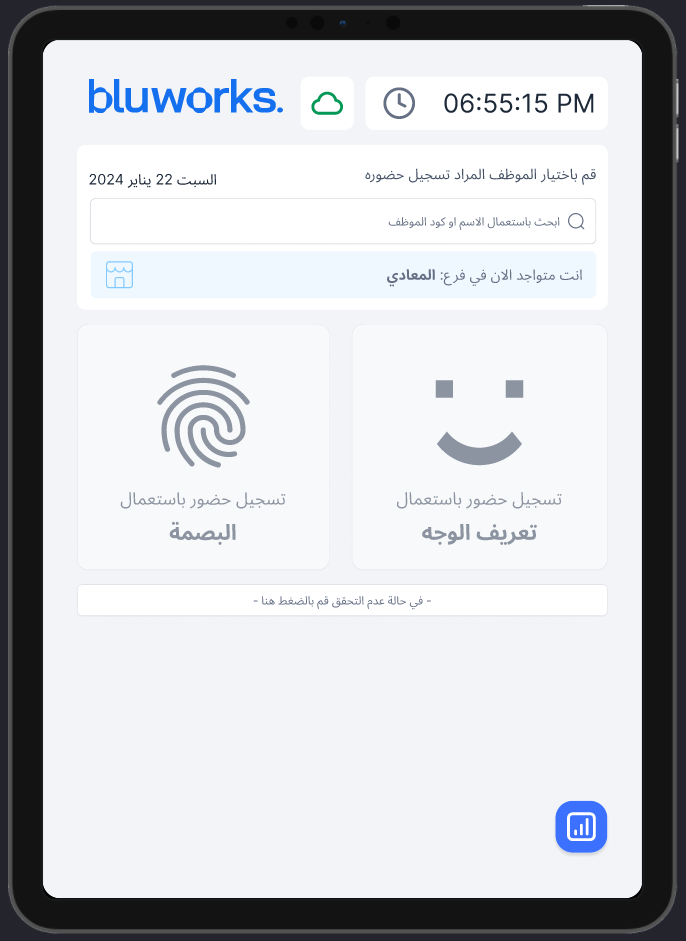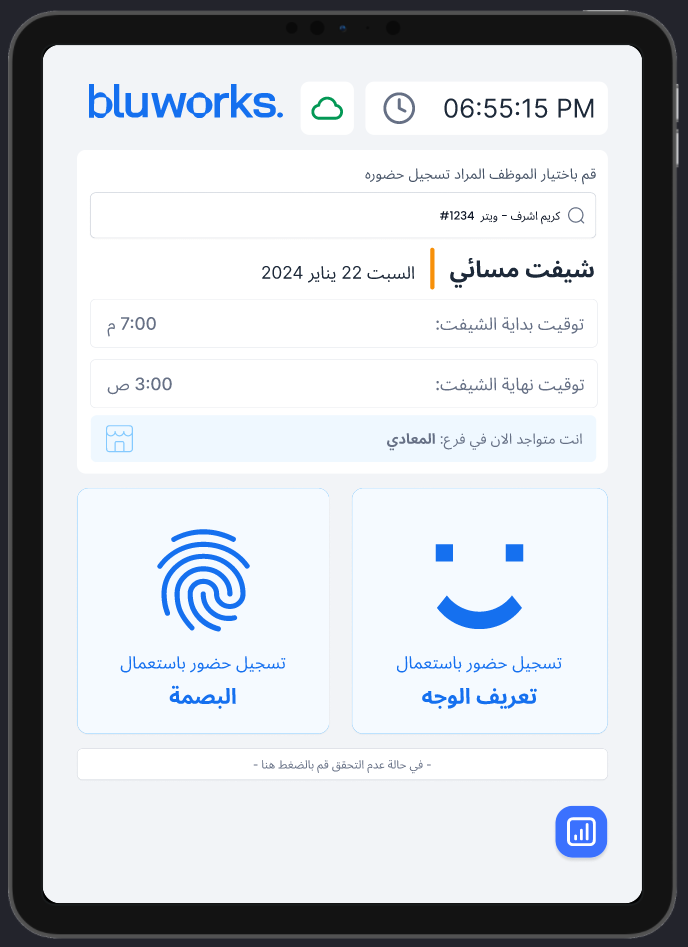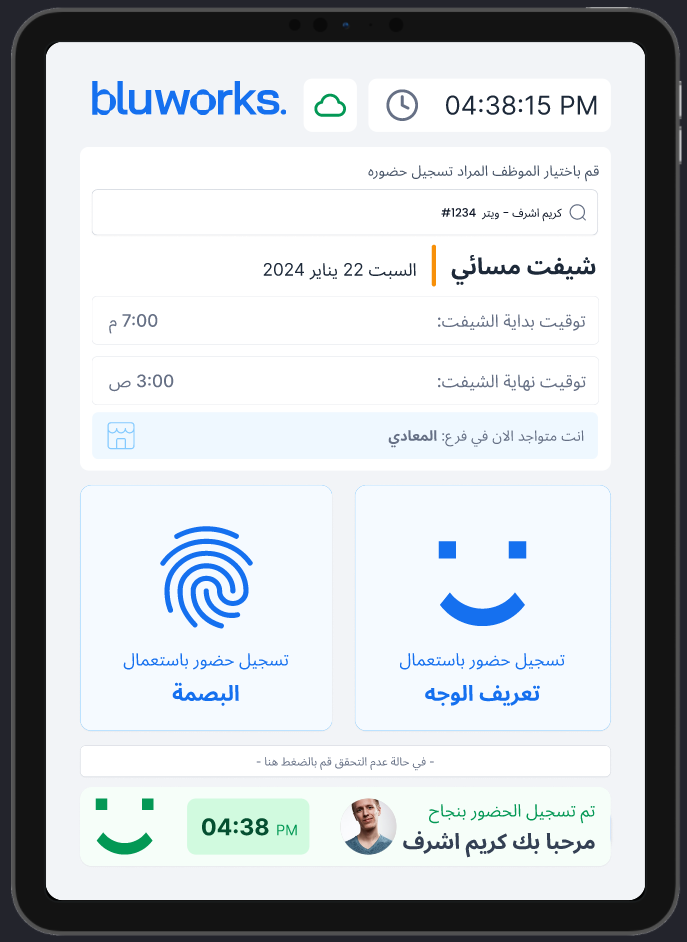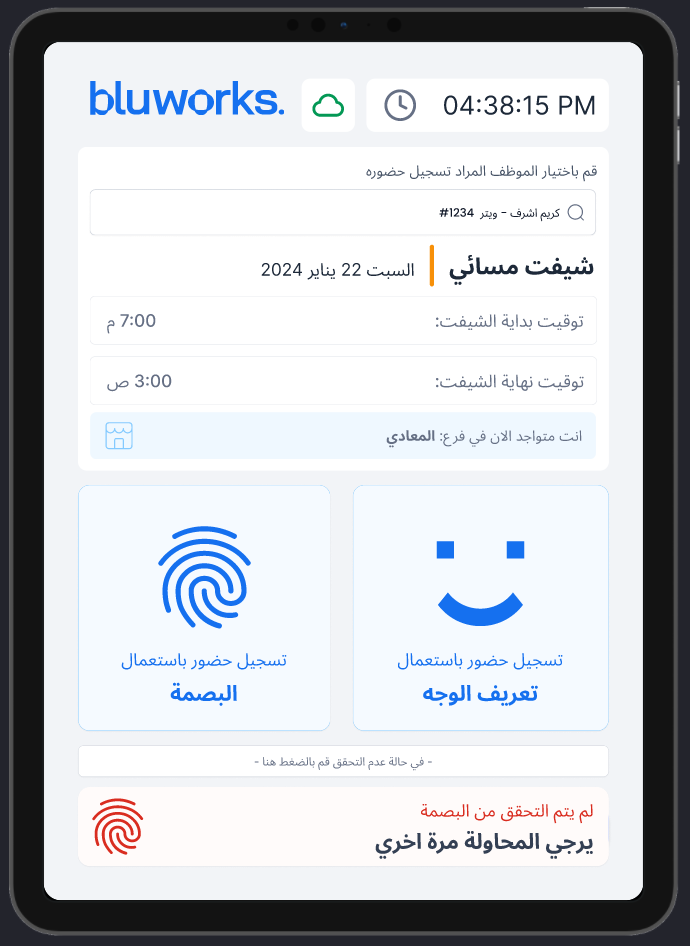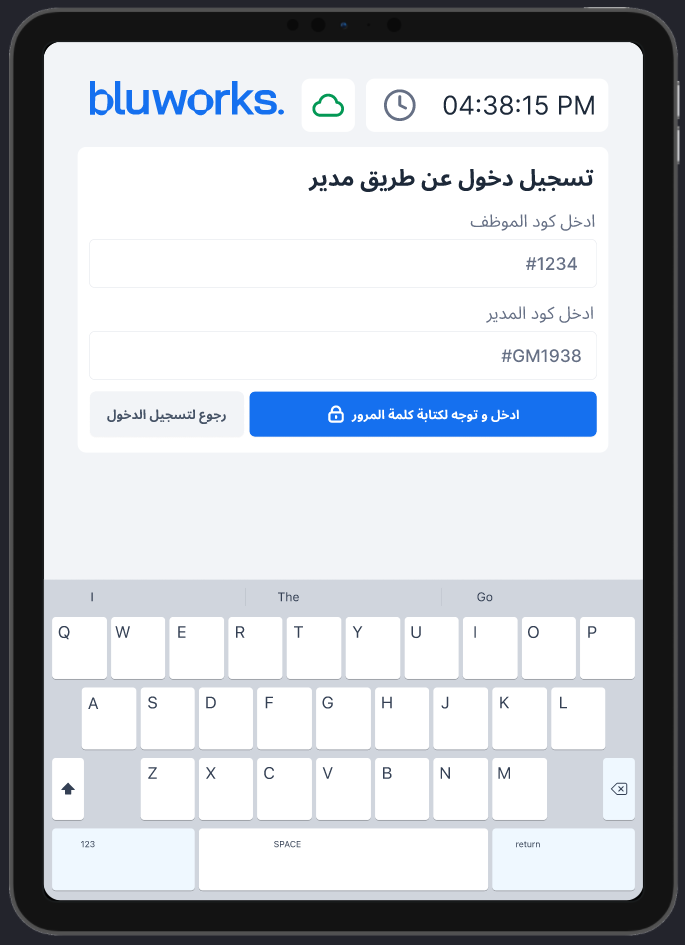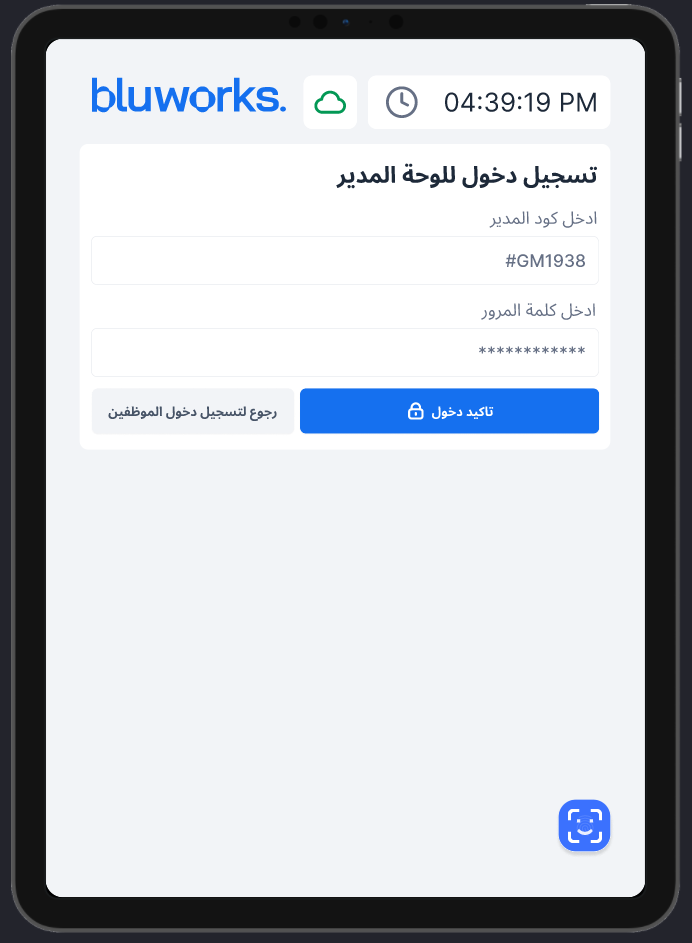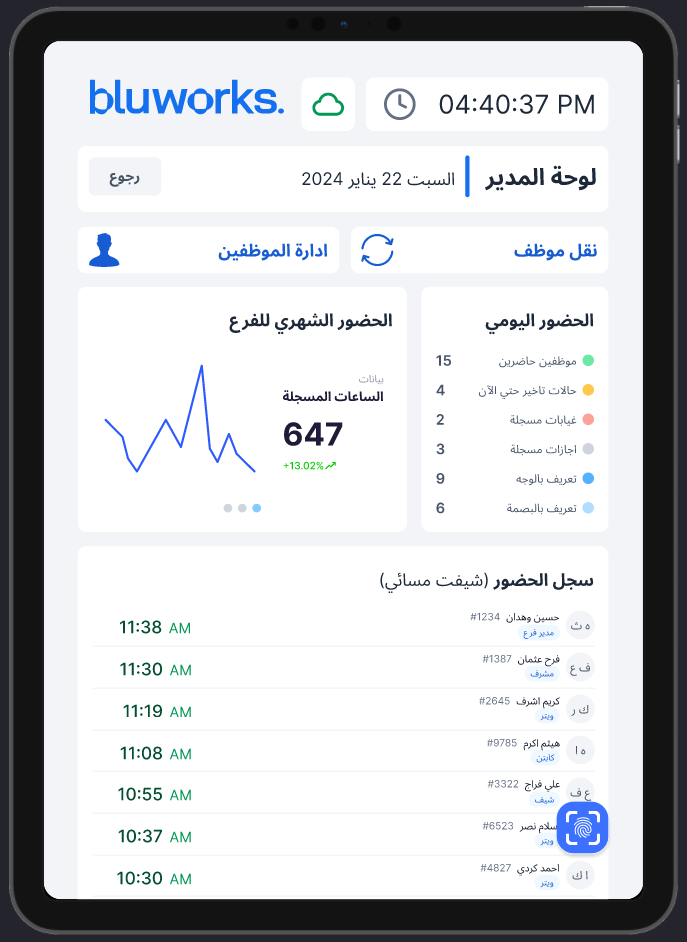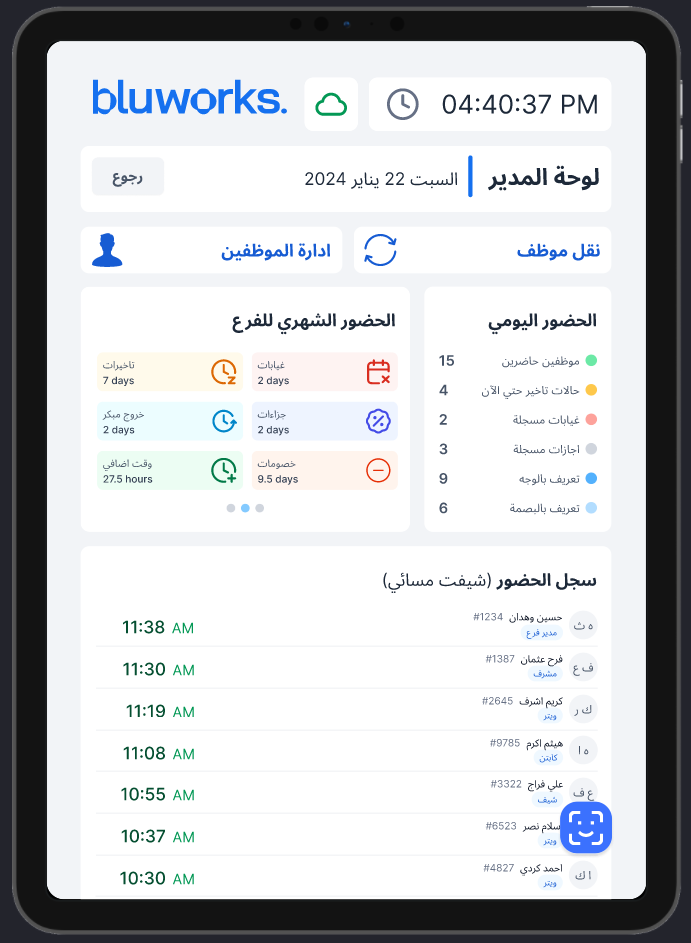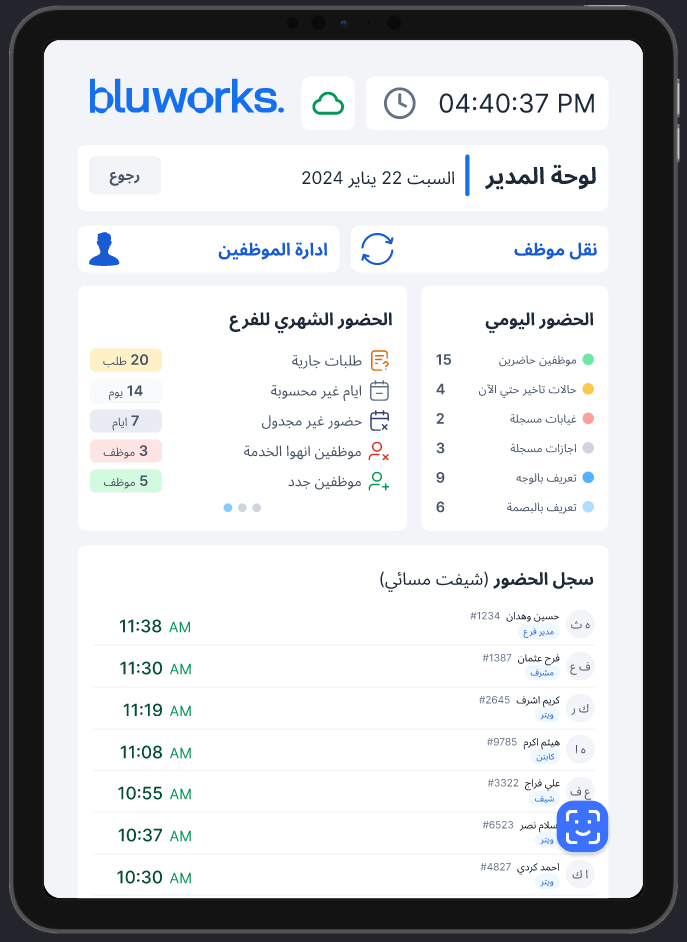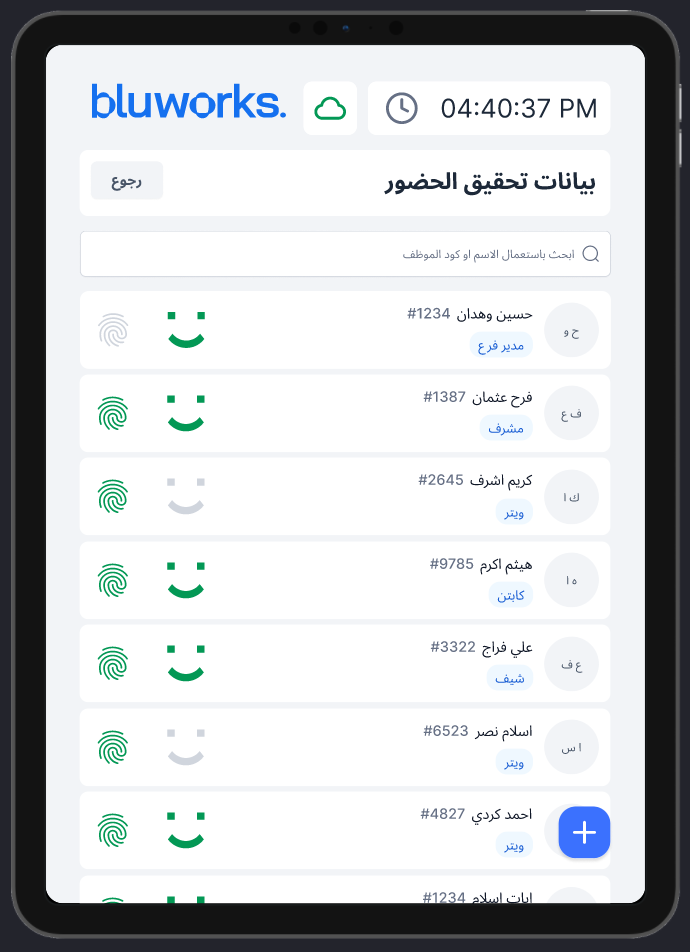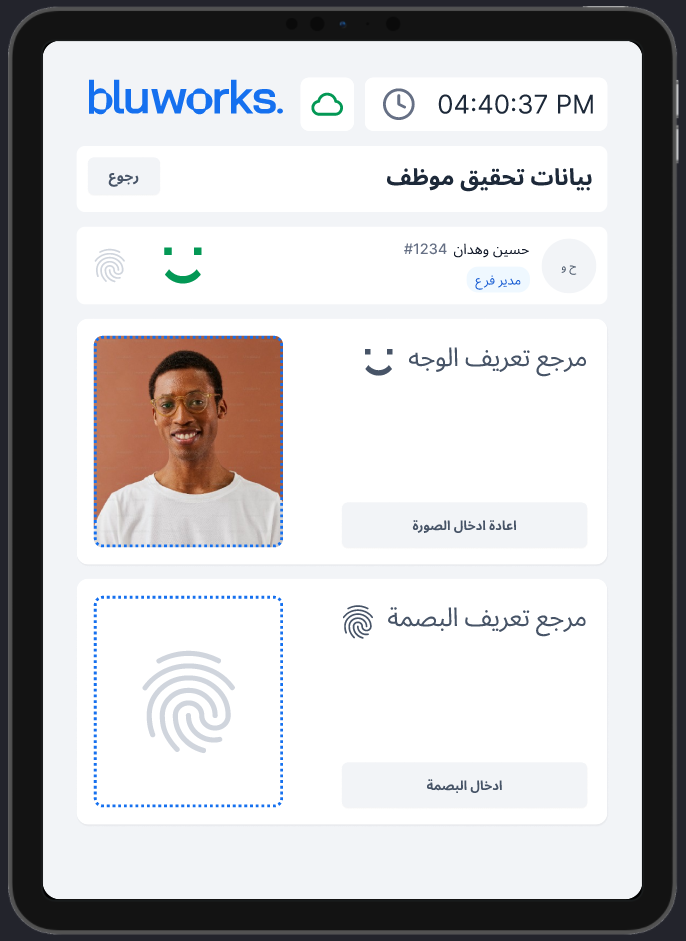Tablet Solution for Employee Clock-In
Project Summary
The Bluworks.io Tablet Solution aims to streamline the employee clock-in process by introducing a fixed device with advanced biometric authentication. This solution addresses issues with phone quality among workers and client preferences for non-personal devices.
Objective
Develop a secure, efficient, and user-friendly tablet application for employee clock-in using biometric authentication methods such as fingerprint and face ID.
1. Discovery & Background Research
1.1 Market & Competitor Analysis
- Existing Solutions: A review of popular attendance management systems (e.g., Kronos, ADP, QuickBooks Time) revealed that while many offer web-based portals, fewer provide dedicated tablet interfaces optimized for quick, on-site clock-in/out.
- Market Trend: According to a 2023 HR tech report, 60% of mid-sized organizations are looking to upgrade their time-tracking methods to improve accuracy and reduce administrative tasks.
- Opportunity: Many organizations still rely on manual punch cards or desktop-based software. A tablet-based solution can bridge the gap by providing an easy-to-use interface, real-time sync, and advanced security features that older systems lack.
1.2 User Research Methodology
- Online Surveys: Conducted with 15 employees from three different companies to understand current frustrations and desired features in an attendance system.
- One-on-One Interviews: Held 15 in-depth interviews with employees in roles ranging from front-line retail staff to HR managers, focusing on user behavior, pain points, and potential solutions.
- Observation Sessions: Spent one days each at two separate branches observing employees’ clock-in/out processes to identify real-world challenges (e.g., lost or forgotten punch cards, unresponsive login terminals, queues at shift changes).
Key Findings from User Interviews
- Forgotten Clock-Ins: 60% of participants admitted they occasionally forget to clock in or out, leading to payroll corrections and disputes.
- Long Queues: 40% reported standing in line for 1–3 minutes daily to clock in/out due to slow or outdated terminals.
- HR Burden: HR managers spend up to 2 hours weekly reconciling attendance discrepancies from manual or semi-manual systems.
- Desire for Mobility: 80% of participants expressed interest in a system that allows quick access and minimal wait times, emphasizing a tablet’s convenience.
- Security Concerns: 40% of employees feared “buddy punching” (when a coworker clocks in for someone else), highlighting the need for authentication measures.
1.3 Pain Points Identified
- Time Theft: Organizations lose an estimated 2% of payroll annually due to time theft (buddy punching, unauthorized extended breaks, etc.).
- System Downtime: Legacy punch clock systems often require re-calibration or maintenance, causing clock-in delays.
- Complex Navigation: Many existing software solutions have cluttered interfaces, leading to user errors and frustrations.
2. User Personas & Scenarios
To ensure the solution addresses diverse needs, three main personas were created based on research insights:
- Front-Line Employee (Ahmed)
- Age: 25–35
- Role: Floor Associate
- Goals: Quick clock-in/out without waiting, easy interface
- Frustrations: Long lines, confusing prompts, occasionally forgets to clock out at the end of shift
- HR Manager (Julia)
- Age: 30–45
- Role: Responsible for payroll and attendance
- Goals: Accurate data, minimal reconciliation time
- Frustrations: Frequent errors needing manual adjustment, difficulty integrating attendance data with payroll software
- Operations Manager (Tariq)
- Age: 35–50
- Role: Oversees multiple locations, monitors overall efficiency
- Goals: High-level reporting, minimal disruption during shift changes
- Frustrations: Lack of real-time visibility into attendance, difficulty aggregating data from multiple facilities
Key Features
Employee Clock-In
- Biometric Authentication: Incorporates fingerprint and face ID recognition for secure and quick clock-ins.
- Manual Authentication: Provides a backup option for clock-in using PIN or employee ID.
- Real-Time Sync: Ensures clock-in data is updated in real-time with the cloud backend.
- Offline Mode: Allows clock-in/out without an internet connection, with automatic data sync once connectivity is restored.
Manager Dashboard
- Basic Attendance Overview: Displays essential attendance data such as late incidents and absences.
- Resolve Attendance Issues: Offers quick access to resolve discrepancies directly from the tablet.
- User-Friendly Interface: Features a simplified design for easy navigation and minimal interaction.
Security and Privacy
- Data Encryption: Secures all biometric data to protect employee information.
- Access Control: Restricts access to manager functions with additional authentication.
Design Specifications
User Stories and Use Cases
- Detailed scenarios to guide the design and ensure all user needs are met.
Feature Prioritization
- Focuses on high-priority features for the initial release to ensure a quick and effective solution.
UI/UX Design
- Wireframes and Prototypes: Developed to visualize the user flow and gather feedback.
Technical Design
- System Architecture and API Design: Ensures seamless integration with existing Bluworks.io applications.
Development Plan
Requirements Gathering and Analysis
- Collaborate with stakeholders and conduct user research.
Design Specifications
- Develop detailed user stories, use cases, and feature prioritization.
UI/UX Design
- Create wireframes, prototypes, and conduct usability testing.
Technical Design
- Design system architecture and define APIs.
Development
- Organize tasks into sprints, begin development, and ensure integration.
Pilot Deployment
- Select pilot clients, provide training, and gather feedback.
Full Deployment
- Adjust based on pilot feedback, develop a rollout plan, and provide support.
Post-Deployment
- Monitor usage, gather ongoing feedback, and make iterative improvements.
-------------------------------------------------------------------------
Wireframes
3. Additional Design & Testing Insights
3.1 Wireframing & Early Feedback
- Low-Fidelity Wireframes: Shared with a focus group of 8 employees and 2 HR managers.
- Immediate Feedback:
- Requests for larger icons and single-tap clock-in/out functionality.
- Desire for optional biometric or PIN-based logins to combat buddy punching.
----------------------------------------------------
Employee Clock-In Screens:
3.2 Prototyping & Usability Testing
- High-Fidelity Prototypes: Built interactive prototypes using Figma.
- Usability Test Group: 10 employees (diverse departments) tested prototypes over a 1-week period.
- Key Metrics:
- Task Completion Rate: 90% successfully clocked in/out on the first try.
- Error Rate: Reduced compared to the existing desktop-based system.
- Satisfaction Score: 70% rated the interface “very intuitive,” 20% rated it “intuitive,” and 10% “somewhat confusing.”
----------------------------------------------------
Manager Dashboard Screens:
-------------------------------------------------------------------------
Attendance Review Screens:
Expected Outcomes
- Enhanced clock-in accuracy and reliability for employees.
- Simplified attendance management for managers.
- Improved client satisfaction with a non-personal device solution.
- Secure and efficient data handling through real-time sync and encryption.
3.3 Pilot Implementation
- Pilot Location: Deployed to a single branch of a mid-sized chain with 35 - 40 employees.
- Duration: 2 weeks
- Outcomes:
- Queue Reduction: Peak-time lines cut by ~30%.
- HR Workload: HR manager reported saving 1 hour per week on attendance reconciliations due to fewer manual corrections.
- Unexpected Feedback: Some employees requested a “Quick Break Clock-Out” option to streamline short breaks.
Reviews
0 reviews
You might also like
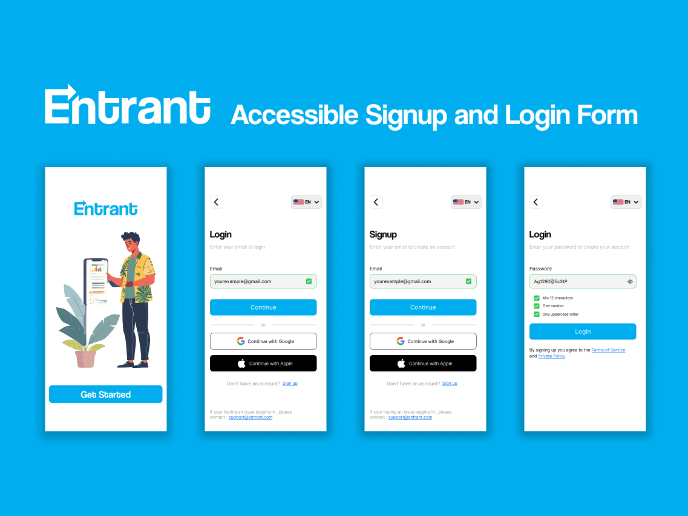
Entrant Accessible Signup and Login Forms
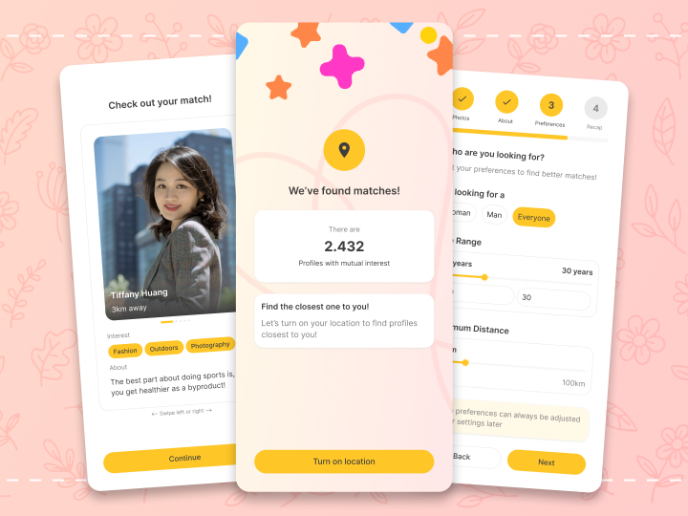
A/B Testing for Bumble's Onboarding Process
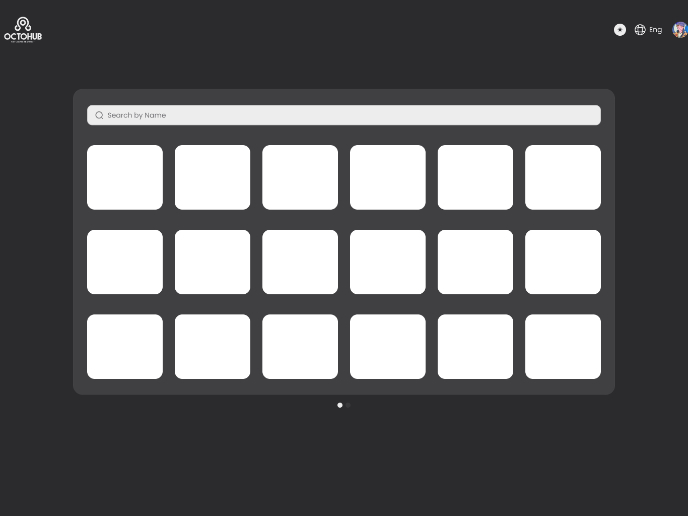
Dark mode Main page
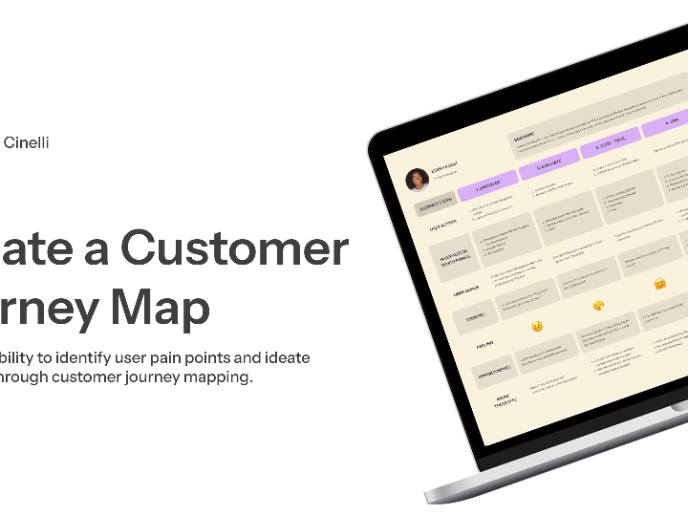
CJM x Mindspace case study - Ester Cinelli

LUMÉRA - Checkout Flow

Tripit's Login and Sign Up Flow
Popular Courses

UX Design Foundations

Introduction to Figma


